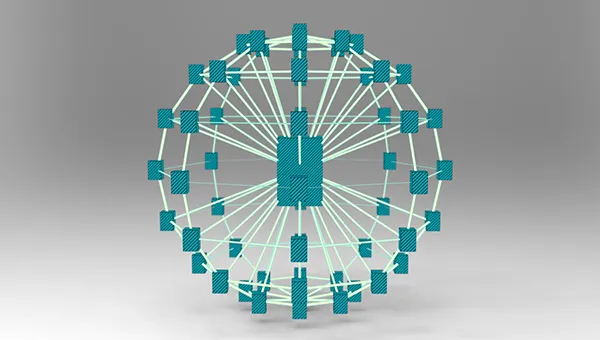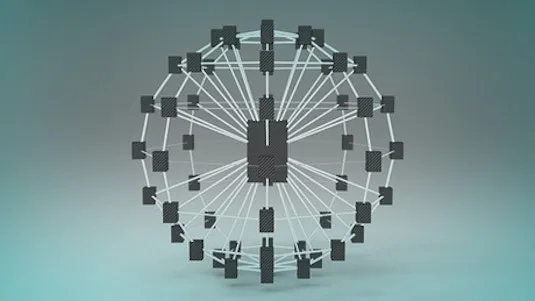
Cloud Computing Fundamentals: Cloud Concepts 
This course provides an introduction to the fundamentals of cloud computing, covering topics such as cloud deployment models, networking concepts, storage types, and cloud design. Gain an understanding of the core features of cloud technologies and learn how to apply them. ▼
ADVERTISEMENT
Course Feature
![]() Cost:
Cost:
Free Trial
![]() Provider:
Provider:
Pluralsight
![]() Certificate:
Certificate:
Paid Certification
![]() Language:
Language:
English
![]() Start Date:
Start Date:
Self Paced
Course Overview
❗The content presented here is sourced directly from Pluralsight platform. For comprehensive course details, including enrollment information, simply click on the 'Go to class' link on our website.
Updated in [March 06th, 2023]
This course, Cloud Computing Fundamentals: Cloud Concepts, provides an overview of cloud computing and its associated concepts. Learners will explore the different cloud deployment models and understand the shared responsibility model. They will also learn about cloud networking concepts, including connectivity types, common access types, load balancing, DNS, and firewalls. Additionally, learners will identify cloud storage technologies, storage features and characteristics, and the different types of storage. Finally, learners will understand the important aspects of cloud design, such as redundancy, high availability, disaster recovery, and recovery objectives.
[Applications]
The application of this course can be seen in the development of cloud-based applications and services. It can also be used to help organizations understand the different cloud deployment models and the shared responsibility model. Additionally, it can be used to help organizations understand cloud networking concepts, cloud storage technologies, and the important aspects of cloud design. Finally, it can be used to help organizations develop strategies for redundancy, high availability, disaster recovery, and recovery objectives.
[Career Paths]
1. Cloud Architect: Cloud Architects are responsible for designing, building, and managing cloud computing systems. They must have a deep understanding of cloud computing technologies and be able to develop and implement strategies for cloud-based solutions. As cloud computing continues to grow in popularity, the demand for Cloud Architects is expected to increase.
2. Cloud Security Engineer: Cloud Security Engineers are responsible for ensuring the security of cloud-based systems. They must have a deep understanding of cloud security technologies and be able to develop and implement strategies for protecting cloud-based systems. As cloud computing continues to grow in popularity, the demand for Cloud Security Engineers is expected to increase.
3. Cloud Developer: Cloud Developers are responsible for developing applications and services for cloud-based systems. They must have a deep understanding of cloud computing technologies and be able to develop and implement strategies for cloud-based solutions. As cloud computing continues to grow in popularity, the demand for Cloud Developers is expected to increase.
4. Cloud Solutions Architect: Cloud Solutions Architects are responsible for designing and implementing cloud-based solutions. They must have a deep understanding of cloud computing technologies and be able to develop and implement strategies for cloud-based solutions. As cloud computing continues to grow in popularity, the demand for Cloud Solutions Architects is expected to increase.
[Education Paths]
1. Bachelor of Science in Cloud Computing: This degree program provides students with a comprehensive understanding of cloud computing technologies, including cloud architecture, cloud security, cloud storage, cloud networking, and cloud design. Students will also learn about the latest trends in cloud computing, such as artificial intelligence, machine learning, and blockchain.
2. Master of Science in Cloud Computing: This degree program provides students with an advanced understanding of cloud computing technologies, including cloud architecture, cloud security, cloud storage, cloud networking, and cloud design. Students will also learn about the latest trends in cloud computing, such as artificial intelligence, machine learning, and blockchain.
3. Doctor of Philosophy in Cloud Computing: This degree program provides students with an in-depth understanding of cloud computing technologies, including cloud architecture, cloud security, cloud storage, cloud networking, and cloud design. Students will also learn about the latest trends in cloud computing, such as artificial intelligence, machine learning, and blockchain.
4. Certificate in Cloud Computing: This certificate program provides students with a basic understanding of cloud computing technologies, including cloud architecture, cloud security, cloud storage, cloud networking, and cloud design. Students will also learn about the latest trends in cloud computing, such as artificial intelligence, machine learning, and blockchain.
The development trends in cloud computing are rapidly evolving, with new technologies and applications being developed every day. As cloud computing continues to grow, the demand for professionals with the skills and knowledge to manage and develop cloud-based solutions will also increase. As such, degree and certificate programs in cloud computing are becoming increasingly popular, as they provide students with the necessary skills and knowledge to succeed in the field.
Course Provider

Provider Pluralsight's Stats at AZClass
Pluralsight ranked 16th on the Best Medium Workplaces List.
Pluralsight ranked 20th on the Forbes Cloud 100 list of the top 100 private cloud companies in the world.
Pluralsight Ranked on the Best Workplaces for Women List for the second consecutive year.
AZ Class hope that this free trial Pluralsight course can help your Cloud Computing skills no matter in career or in further education. Even if you are only slightly interested, you can take Cloud Computing Fundamentals: Cloud Concepts course with confidence!
Discussion and Reviews
0.0 (Based on 0 reviews)
Explore Similar Online Courses

Digital Marketing Analytics: Tools and Techniques

Natural Language Processing

Python for Informatics: Exploring Information

Social Network Analysis

Introduction to Systematic Review and Meta-Analysis

The Analytics Edge

DCO042 - Python For Informatics

Causal Diagrams: Draw Your Assumptions Before Your Conclusions

Whole genome sequencing of bacterial genomes - tools and applications

Cloud Computing Concepts Part 1

Introduction to Cloud Identity


Start your review of Cloud Computing Fundamentals: Cloud Concepts